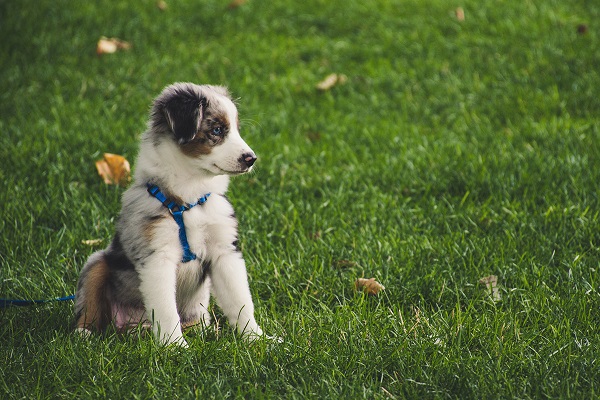EarthTalk®
From the Editors of E – The Environmental Magazine

Dear EarthTalk: Is it true that lawn chemicals can cause canine cancer, and if so, how can I protect my dog? — Bill W., Ithaca, NY
Unfortunately, the answer may very well be yes. A 2012 study published in the peer-reviewed scientific journal, Environmental Research, found that exposure to certain lawn care products, such as the nearly ubiquitous herbicide 2,4-Dichlorophenoxyacetic acid (2 4-D for short), increases dogs’ chances of developing Canine Malignant Lymphoma (CML) by 70 percent. When ingested repeatedly, 2 4-D acts as an endocrine disruptor, mutating a dog’s white blood cell count allowing malignant tumor cells to replicate unchecked. While obviously worrisome for dogs and those of us who love them, the implications for people aren’t good either, given the similarities between the onset of CML in canines and non-Hodgkin’s lymphoma in humans.
A 2013 study in another peer-reviewed journal, Science of the Total Environment, found that “exposure to herbicide-treated lawns has been associated with significantly higher bladder cancer risk in dogs.” Certain breeds of dogs (terriers, beagles, sheep dogs) are at greater risk, but needless to say lots of 2 4-D or other synthetic lawn chemicals like glyphosate (the active ingredient in RoundUp) aren’t good for dogs of any stripe. “A strong justification for the work was that dogs may serve as sentinels for potentially harmful environmental exposures in humans,” report the researchers behind the bladder cancer study.
What can you do to help prevent more dogs (and humans) from getting sick? For starters, avoid using lawn care chemicals around your home. And if you hire or manage someone else to take care of your yard, make sure they are not using 2 4-D, glyphosate or any other potentially hazardous pesticides, herbicides or fertilizers. Getting rid of your lawn altogether and replacing it with regionally adapted native plants that don’t need fertilizers or pesticides to thrive is another way to protect dogs from chemicals while saving yourself the trouble of having to mow the lawn.
If you can’t live without a grassy green lawn and can’t bear to just let it go wild, opt for all-natural, organic inputs. For instance, organic compost distributed across your lawn with a shovel in a thin layer can do just as well or better at nourishing your grass as chemical fertilizers. For weed control (beyond good-old hand-pulling), a great all-natural alternative to RoundUp is BurnOut, which uses the power of food-grade vinegar and clove oil instead of glyphosate to eradicate unwanted plants.
As for protecting your dog while out on a walk, steer clear of private lawns, even if you have to leash Fido to keep him out of neighbors’ yards. And the days of letting your dog run free in parks where your municipality may use questionable landscaping chemicals are over now that we know the potential consequences. Fortunately, many enlightened cities and towns have taken steps to rid their publicly accessible lands of such hazardous treatments. But you won’t know unless you ask, so contact your local parks department to find out exactly what they’re spraying. And if you don’t like the answer, rally other dog owners to help get it changed, for dogs’ sake.
CONTACTS:
“Household Chemical Exposures and the Risk of Canine Malignant Lymphoma, a Model for Human Non-Hodgkin’s Lymphoma,” ncbi.nlm.nih.gov/pmc/articles/PMC3267855/;
“Detection of herbicides in the urine of pet dogs following home lawn chemical application,” ncbi.nlm.nih.gov/pubmed/23584031;
BurnOut Weed and Grass Killer, amzn.to/2XyhKGe.
EarthTalk® is produced by Roddy Scheer & Doug Moss for the 501(c)3 nonprofit EarthTalk. See more at https://emagazine.com. To donate, visit https://earthtalk.org. Send questions to: question@earthtalk.org.
